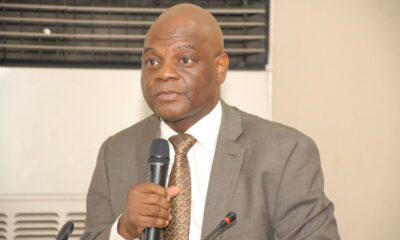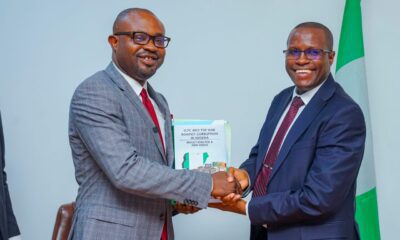News
ICPC advocates for synergy between armed forces, paramilitary agencies to combat corruption
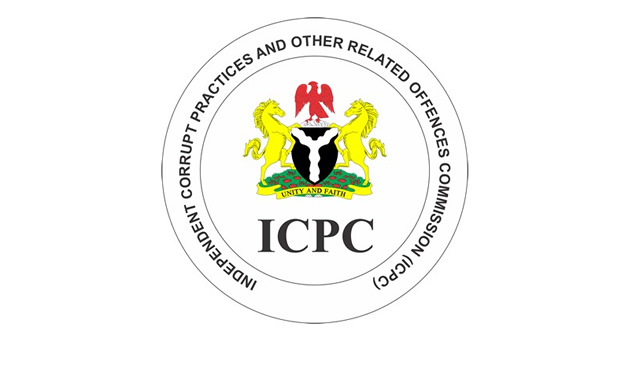
The Independent Corrupt Practices and Other Related Offences Commission, ICPC, has called for proper synergy among armed forces and paramilitary agencies to stem the tide of corruption in Nigeria.
The call was made by the ICPC Chairman, Dr. Musa Adamu Aliyu on Wednesday at the opening ceremony of a 3-day workshop on “21st Century Policing: Capacity Building Techniques and Brand Management for Security Image Makers” holding in Abuja.
Dr. Aliyu, who spoke through the Secretary to the Commission, Mr. Clifford Okwudiri Okparaodu, said the Commission was willing to work with other sister agencies in the security sector to prevent corruption through its system study and review, corruption risk assessment including capacity building through the Anti-Corruption Academy of Nigeria (ACAN).
In his words, “Undoubtedly, the war against corruption cannot be won in a swoop, neither can it be won by ICPC or any anti-corruption agency alone, but by a series of efforts involving stakeholders like you. This is where your role as the image makers of your agencies comes to the fore.
“As public relations professionals and image makers for your organisations, you should not only report the right things about your organisation but be seen to be doing the right things. You are not expected to cover up acts of corruption in the name of projecting the image of your organisation.”
Earlier in his remarks, the Provost of ACAN, Prof. Olawale Babawale revealed that since its inception in 2014, the Academy has successfully trained over 24,000 participants, through hybrid methods, even across ECOWAS sub-region and the African Union.
He explained that given the strategic role of public relations practitioners as the image makers of their Organisations, they are expected to be the bastion of integrity and veritable partners in the war against corruption especially for the military, paramilitary, law enforcement, and registered private security organisations.
Prof. Babawale said, “The learning objectives have been formulated in such a way that participants are equipped with the knowledge and skills that would enable them to become viable partners in the anti-corruption war, while also carrying out their duties effectively, using contemporary strategies. This way, we believe that the foundation for a long-term sustainable assault on corruption is laid.”
Participants were drawn from the Nigeria Customs Service (NCS), Nigerian Army, Federal Road Safety Corps (FRSC), National Drug Law Enforcement Agency (NDLEA), and Information officers from the Ministry of Interior.
News
LASG connects over 688,000 poor households with stakeholders for poverty reduction
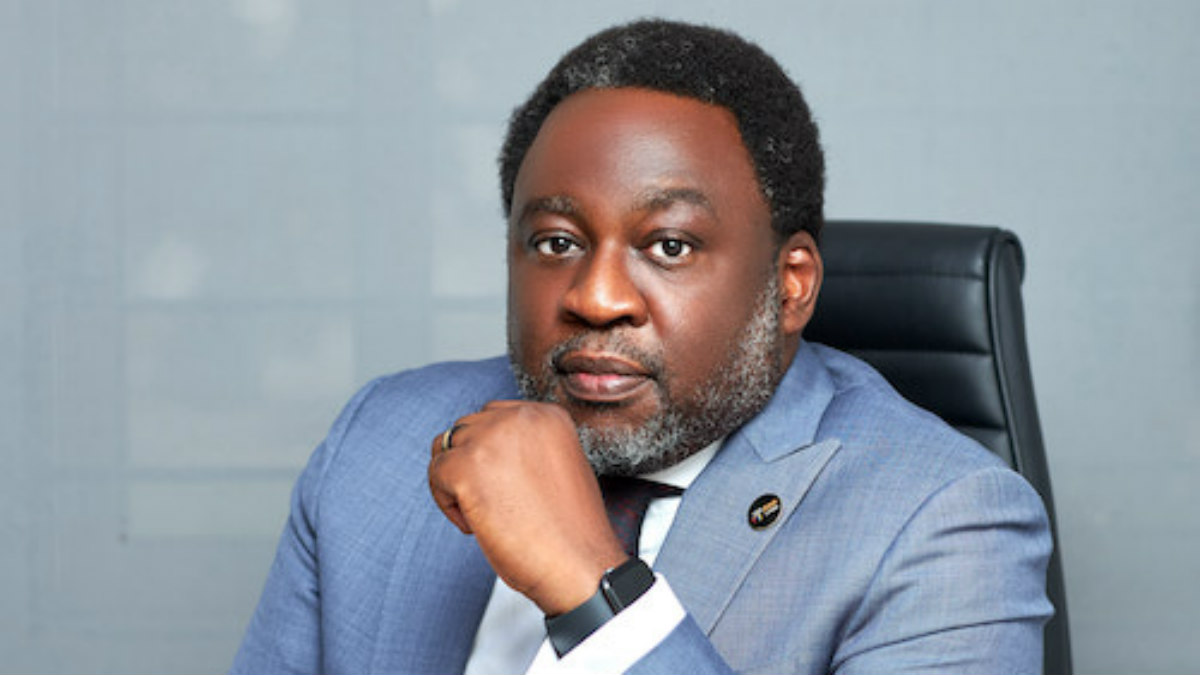

…Certifies 603 pre-payment certificates for projects across 20 LGAs
By Sodiq Adelakun
The Lagos State Government has taken a significant step towards reducing poverty in the state by connecting 688,759 poor and vulnerable households on the register with SFMDAs, development partners, corporate organizations and other relevant stakeholders.
This was announced by the Honourable Commissioner for Economic Planning and Budget, Mr. Ope George, at the 2024 Ministerial Briefing held on Thursday at the Bagauda Kaltho Press Centre, Alausa, Ikeja.
According to the Commissioner, the Ministry has successfully registered 688,759 heads of poor and vulnerable households, comprising 2,681,507 members, as validated by the National Social Safety-Nets Coordinating Office (NASSCO), Abuja.
He revealed the registration has enabled the state government to provide a holistic approach to poverty reduction, improving the livelihoods of households through connections with Social Fund for Millennium Development (SFMDAs), development partners, corporate organisations, and other stakeholders.
According to him, “As a Social Protection Nexus and the custodian of the Lagos State Single Social Register (LASSR),
“The Ministry has been able to register 688,759 Heads of Poor & Vulnerable Households and 2,681,507 Members of Households as validated by the National Social Safety-Nets Coordinating Office (NASSCO), Abuja. The LASSR is hosted on the State’s website.
“These efforts aligned with Mr. Babajide Olushola Sanwo-Olu’s T.H.E.M.E.S+ agenda.
“Deepening the Mining Process, the Ministry is currently mining data for various stakeholders, including Socio-Functional Ministries, Departments, and Agencies, Development Partners, Civil Society Organizations and Philanthropists to facilitate access to Social Intervention programmes aimed at uplifting the Poor and Vulnerable Households.
“A total of 592,602 Poor and Vulnerable Heads of Households (PVHHs) have benefited from various social interventions Statewide.”
Also, while speaking the commissioner announced the certification of 603 Pre-Payment Certificates (PCs) for projects executed across all 20 Local Government Areas (LGAs) in the state.
He said the certified projects were carried out collaboratively by 46 Ministries, Departments, and Agencies (MDAs) in partnership with 410 contractors, covering both direct labor and outsourced services.
The projects span across nine sectors, including Economic Affairs, Education, Environmental Protection, General Public Services, Health, Housing and Communities Amenities, Public Order and Safety, and Social Protection.
According to the breakdown of Pre-Payment Certificates PCs, it was gathered that across nine critical sectors reveals a concentrated effort towards economic advancement, education, environmental protection, public services, health, housing, and public safety.
With 256 PCs allocated to the Economic Affairs Sector, 77 to Education, 75 to Environmental Protection, 62 to General Public Services, 47 to Health, 77 to Housing & Communities Amenities, and 9 to Public Order and Safety, the Ministry underscores its commitment to holistic development and sectoral progress.
Also, the Ministry has made significant strides in its efforts to promote economic growth and development in the state.
“The State through this Ministry has led another milestone delivery, as the first State to publish a State specific economic update tagged ‘Lagos Economic Development Update’ (LEDU) Report.
“The report summarises the State’s macroeconomic outlook, economic journey and prospects; projects the economic landscape and gives insight into the sector’s productivity for ease of access to economic growth and development,” He reiterated.
News
Oyo Govt unveils free technology skill training for 1,000 students
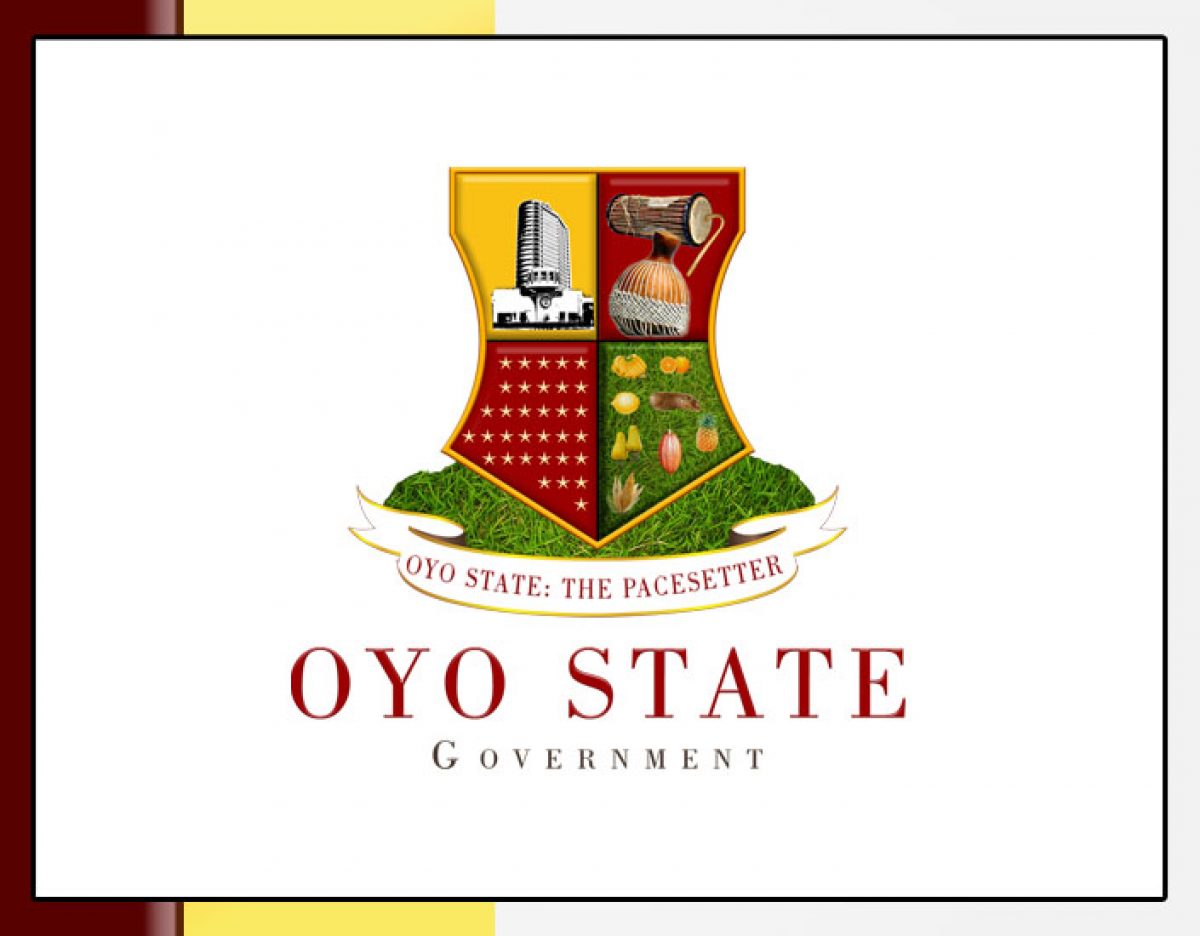

As part of its effort to ensure quality and sustainable development in the education sector in line with the Omituntun 2.0 Agenda of the state governor, ‘Seyi Makinde, the Office of the Human Capital Development has revealed its readiness to train 1,000 senior secondary schools students on free coding and non-code technology skills.
The Executive Assistant to the Oyo State Governor on Administration, Revd. Idowu Ogedengbe, stated this on Friday, during a Press Briefing held at the Governor’s Office, Secretariat, Agodi, Ibadan.
Ogedengbe noted that the initiative, which is aimed at launching a groundbreaking technology programme to empower senior secondary school students across the 33 Local Government Areas of Oyo State, with technology skills, will be implemented in partnership with some private investors in the technology sector.
He maintained that the training, which will be held between July 15th and July 19th at the International Conference Centre, University of Ibadan, will begin with selected schools in all the eleven (11) local governments in Ibadan Main and Less Cities, while other beneficiaries from the remaining local governments will be trained at a subsequent date.
He said, “This pilot programme will witness an unprecedented event where 1,000 senior secondary school students from the 11 local governments of Ibadan will receive specialised training in coding and non-code tech skills.”
“The next phases of the initiative would see us taking the training to the remaining LGAs with a view to ensuring that the impact is widespread and even across all the constituencies in Oyo State.
“This initiative marks a significant milestone in our commitment to providing quality education and preparing our youth for the challenges and opportunities of the 21st century.
“CodeGarage Africa has been at the forefront of promoting digital literacy across Africa, and we are delighted to partner with them in this endeavour with the support of Zeeh Africa and 386Konsult. We aim to equip our students with the tech skills and knowledge necessary to thrive in the increasingly digital world.
“The importance of coding or non-code tech skills cannot be overstated in today’s society, from driving innovation to solving complex problems, tech skills are a fundamental skill that opens doors to countless opportunities.
“Introducing coding education to our senior secondary school students will allow us to lay the foundation for a future where they can excel in technology-driven fields and contribute meaningfully to the development of our state and beyond.”
Ogedengbe added that the programme is in tandem with the vision of Governor Makinde on education, as his government’s policy is not only to invest in the future of the youths but to also position Oyo State as a hub for innovation and technological advancement.
He, therefore, encouraged stakeholders, including parents, educators, and the private sector, to support and participate in the laudable programme to unlock the full potentials of the young stars to become leaders in the digital age.
In their remarks, the partnering private investors, CodeGarage Africa, Miss Dolapo Ayeni and her counterpart, Zeeh Africa, Mr David Adeleke, said training the students from the grassroots level is very useful to the ecosystem.
They added that it is another way of catching them young and also exposing them to entrepreneurship, even as they called for more partners to collaborate with the Oyo State government.
News
We registered below 3,000 data controllers, processors despite identifying 500,000 — NDPC Commissioner
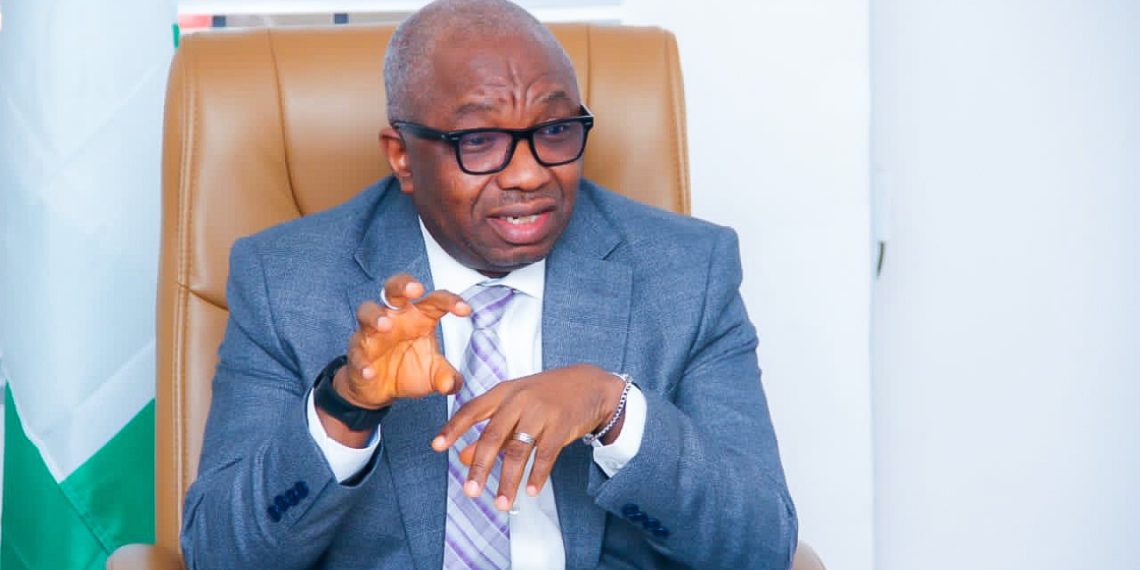

By Matthew Denis, Abuja
The National Commissioner and Chief Executive Officer of Nigeria Data Protection Commission (NDPC), Dr. Vincent Olatunji has disclosed that the level of compliance for the registration by data controllers and processors given by the commission is still low.
He revealed that they have only registered below 3000 Data controllers, processors despite identifying 500,000 in the country.
The Commissioner made the disclosure during an exclusive interview with Nigerian NewsDirect at his office in Abuja on Thursday.
Recall that the agency has notified all entities, including businesses, educational institutions, healthcare providers, and other organisations that collect personal data of individuals, that registration is mandatory in accordance with Section 5(d) of the Nigeria Data Protection Act, 2023.
The Commission had commenced registration on January 30th, 2024 to conclude on June 30th, 2024 and added that entities that fail to register within this time frame will be subject to penalties.
Dr. Olatunji while speaking to NewsDirect said, “the ecosystem is just revolving and a lot of people don’t really understand what we’re talking about regarding Data controllers, Data processors. That’s why we’re going loud to create awareness.”
The Commissioner stressed that they’re done with the first phase and very soon they will commence with the second phase the need for them to register which speaks on the reputation of their organization, compliance and credibility and one thing that this will create is trust and confidence in your data processing activities as an organization.
“We have up to the end of June, 2024 for all of them to register and we’re starting another massive campaign for them to register in the next two weeks.”
According to him in terms of compliance for registration with the commission the situation is still low.
He said, “When we started in 2022 we had about 1,777 data controllers and processors and last year it rose to over 2,000 but it’s very low when compared to the number of data controllers and processors we have identified in the country.
“We have identified about 500,000 and today we’re doing less than 3000 that means we have not even started at all, that is why we’re speaking to stakeholders and bringing everybody onboard.
“We have released the guidelines strategy telling you who qualifies as a Data controllers and processors and their categories in the country.”
The Commissioner emphasised that it’s their expectation that Nigerians will embrace the programme and key into it for the safety of the country with accurate data collection and protection.
-
capital market2 years ago
Rt.briscoe, FBNH, Others halts negative performance of stock market
-
Finance3 months ago
Court orders Sen. Victor Umeh to repay N136m bank debt to AMCON
-



 Abuja Update2 months ago
Abuja Update2 months agoUNDP, FG partnership needed to achieve inclusion, equity- Minister
-
Abuja Update1 month ago
Banks drive stock market performance with N147bn gain
-



 Business2 weeks ago
Business2 weeks agoTingo Group unveils Tingo Electric, Tingo Cola drink at Lagos launch
-



 Health3 weeks ago
Health3 weeks agoCapacity training will reduce migration of health workers- NPHCDA
-
News4 months ago
Oil thieves sponsoring malicious media campaign against Navy – Spokesman
-



 Infotech1 month ago
Infotech1 month agoWorld Backup Day: NITDA urges Nigerians to ensure backup of data

